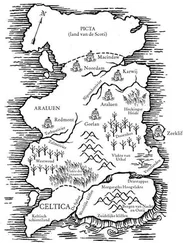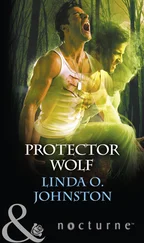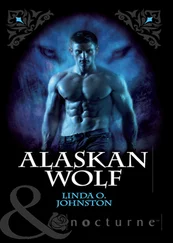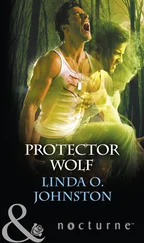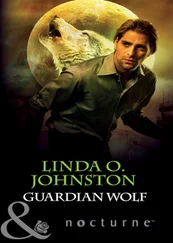When I saw the music show the second time it seemed like there were more of these glitches than usual. The show was about Satanism in music: apparently bands had started encoding Satanic messages into their songs by recording the music backwards, and teenagers were being won over for Satan through this process. They had a couple of experts on the show as guests, and they said that rock music, which had become the most popular music in the world, was being used by the devil to get his message across. Does the devil actually have his own message? This seemed like a big question for me when I was thirteen and up late on summer nights.
They introduced one guest as a guy who’d been a rock musician for many years before he’d started living for the Lord. He was there to explain how the messages got put into rock music, whether it was something people did on purpose or some more subtle process from the spiritual world; his mission was to spell out what the messages meant in greater detail, because sometimes they were hard to understand, and it was important to know what was out there. “Some of the stuff that’s out there,” he said, “it’s really amazing, what’s right out there under your nose.” He gave everybody a grave look, and they passed the same look around among themselves, and I felt, watching, like I was either missing out on something or being let in on a big secret: or someplace in the space between those two possibilities, drifting.
It was hard to follow, but as near as I could figure it, singers whose hearts were in the wrong place were vulnerable to demonic influence when they wrote. They wouldn’t know when the process started, and it would take hold of them before they knew it: they became emissaries then, messengers carrying sealed envelopes. They sang songs they felt they’d written but actually hadn’t, and if you played them backwards, they spread the message of Satan.
Nobody on the broadcast seemed particularly surprised by this claim. The world was a place full of ugly magic. As an example, the guest held up a record by a singer named Larry Norman, which he said was full of backwards messages: “packed” was the way he put it. Larry Norman made Christian music—”the so-called Christian rock,” the guest practically spat — and he’d actually been a guest of Paul and Jan on the show at some point, which they mentioned with a look of concern. And then the guest told the producers to cue up a Larry Norman record, and they played it forward and then reversed it, and in reverse, it sounded like a hole opening up in the earth out in the dark, abandoned desert.
What you were supposed to hear when the record played backwards was the phrase wolf in white van. Nobody had a very firm idea of what that was supposed to mean, but they all agreed about what they were hearing: that it was a hellish picture to paint, and for young people to hear. Paul did ask what, exactly, it meant, and the guest talked about the symbol of the wolf in ancient cultures, but nothing got much clearer. It was a dark smudge of an idea shared among believers.
The second time I saw the show it looked like everybody’d kept right on worrying about the whole question between the first broadcast and its twin. They seemed tired, and a little frightened, and they were beginning to repeat themselves, working the meaningless backwards phrases out loud like riddles nobody could quite solve. It took them longer to get from one point to the next; the messages were sticking in their throats, looming before them like visions. That was when I got the idea, because the prayer line number was right there on the screen.
In the hallway there was a phone with a long cord. Mom and me were alone in the house all weekend; Dad was off hunting boar with his friends from work up in Solano County like he did every summer. The house felt so different with fewer people in it. It was the middle of the night; I crept out of my room quietly, and I snuck the phone down the short distance from its little hallway alcove to my room, and I threaded the cord through the gap between the door and the carpet so it wouldn’t get pinched in the jamb. I eased the door shut, and I wondered why I was doing this, but at the same time I felt like it was too late to turn back.
“Praise the Lord, this is Carol,” said the woman on the other end when the line picked up. I always remembered that afterward, the exact sound and rhythm: “Praise the Lord, this is Carol.” Was I younger then than I now believe I was? I told her my name was Sean, and that I had a question for the guest.
Carol laughed. “This isn’t our call-in show, honey,” she said, gently. “That’s that morning show, on the weekdays.”
“I just had a question,” I said. For a minute neither of us said anything and I could hear the other operators praying with callers in the background.
“I know, honey, but they can’t really—” She stopped for a second. “What’s your question, hon?” she said.
What I’d meant to ask her was why the devil would talk backwards: why he didn’t just get his message out directly, by speaking clearly, straight into the brains of the people he knew he could win over. To me this was obviously the most important question about the whole thing, because the devil’s process as they’d described it sounded like a lot of hard work for almost no gain. But then I thought about my old throne in the backyard, and I understood something about the operator and the people she worked for, and I changed my question. “The devil,” I said, and I just let the word hang for a minute in the air.
I thought she was going to yell at me or hang up, but she surprised me. “Sean,” said Carol, the TBN telephone operator who was supposed to be taking down people’s pledges, “praise the Lord, the devil has no dominion over us. He tries to take back the good things the Lord has done for us, but he can’t, because that power isn’t given into his dominion, amen?”
“The devil,” I said, with a rising inflection to suggest more question coming, but then I found myself cupping my hand between my lips and the mouthpiece. I reached down into my imagination and made a strangled gurgling sound with my throat, vocalizing on the inhale and curling my tongue into various positions to make it sound like I was talking in reverse. I scared the hell out of myself with this sound: it felt real. I kept it up for the better part of a minute and a half.
Carol was a prayer warrior for Jesus working in Costa Mesa toward the end of the last age, and she was made of sturdier stuff than a young teenager might have guessed. “Devil,” she said as soon as I was done, without any break to get her bearings, “you let go of Sean right now. He’s heard the Good News tonight and nothing you can put in his head can drive it out. You loose this child of God from your chains. In the name of Jesus, I pray,” she said. In my room a total silence took hold.
I said “Amen” the next time she asked for an Amen , but I was barely listening: I was lost in the story these people all believed, catching currents of it and riding them out into the far reaches of imagined possibility, believing everything they believed but from different angles, exciting perspectives, smoldering momentary vistas without end.
“Sean, you don’t have to live as a slave,” she said. “Jesus paid the price for you. Will you pray the sinner’s prayer with me now?”
“I drink the blood of my slaves,” I said, in a hushed-house whisper clean out of nowhere, shocking myself and feeling the power, and that was when she hung up.
Some lessons you learn gradually and some you learn in a sudden moment, like a flash going off in a dark room. I sift and rake and dig around in my vivid recollections of young Sean on the floor in summer, and I try to see what makes him tick, but I know a secret about young Sean, I guess, that he kind of ends up telling the world: nothing makes him tick. It just happens all by itself, tick tick tick tick tick , without any proximal cause, with nothing underneath it. He is like a jelly-fish adrift in the sea, throbbing quietly in the warm waves of the surf just off the highway where the dusty white vans with smoked windows and indistinct decals near their wheel hubs roll innocently past.
Читать дальше

